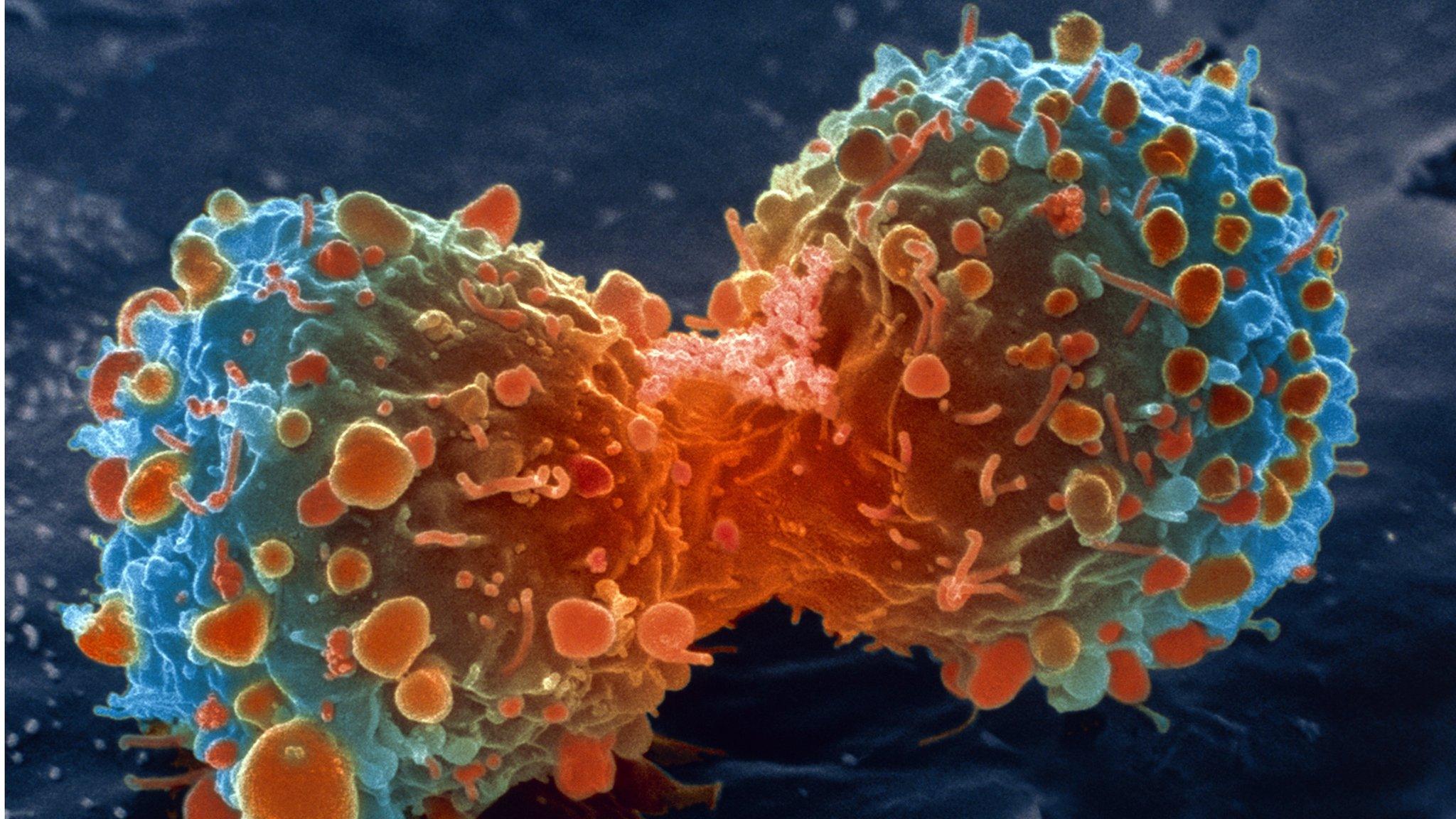The nurse hired to combat cancer myths online
- Published
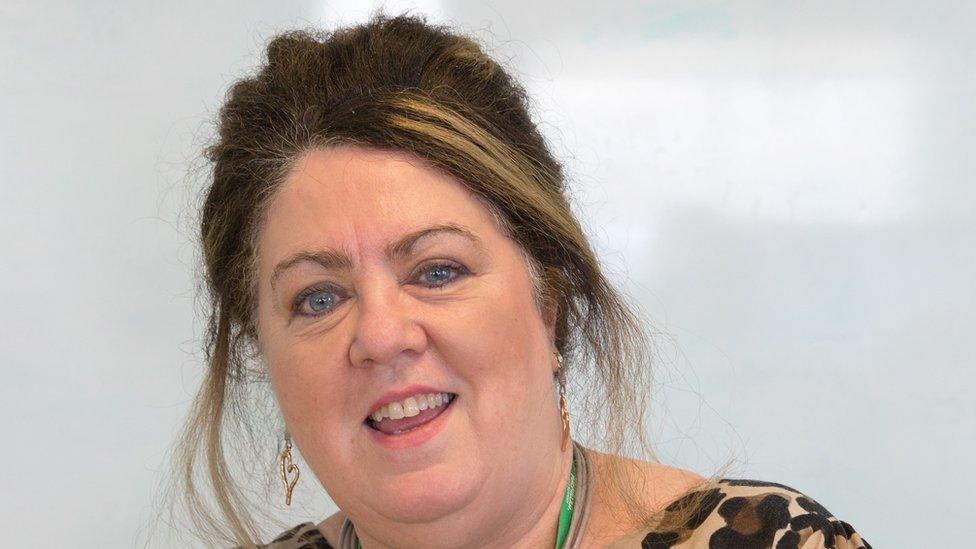
A cancer charity has appointed a digital nurse to combat "fake news" online, which they say leaves patients "scared and at risk of bogus cures".
Macmillan Cancer Support found two-fifths of people with cancer looked up information about their diagnosis on the internet.
One in eight of those went online because they didn't fully understand what their doctor had told them.
Glaswegian nurse Ellen McPake, who landed the job, says she wants to correct the misinformation that exists.
She said: "Once the doctor says 'cancer', people automatically then shut down and they don't take in the information that they're given.
"So they go home, speak to the family. And then they'll sit online that night and get themselves in a frenzy with what they're reading."
She says people focus on the worst-case scenario: "There's quite a lot of myths out there," she said.
Here are some of them:
Sodium bicarbonate can cure cancer
"Some people think that drinking it or taking it intravenously can cure cancer. There isn't any evidence to support that," she said.
Working on Macmillan's support line, Ellen said people would report trying it because it seemed less harsh than chemotherapy or radiotherapy.
"For some people it can be quite dangerous - it affects their kidneys and makes them feel quite unwell," she said.
Sugar gives you cancer
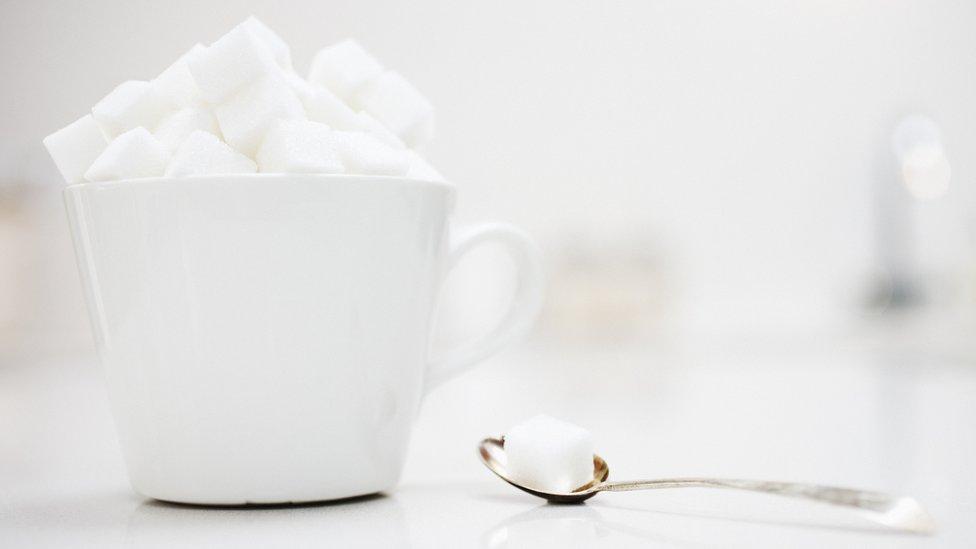
Some people mistakenly believe that sugar can give you cancer
Ellen said some patients misguidedly think sugar causes cancer. While obesity has been linked to cancer, consumption of sugar itself does not increase risk.
Medical practice the Mayo Clinic writes:, external "Sugar doesn't make cancer grow faster. All cells, including cancer cells, depend on blood sugar (glucose) for energy. But giving more sugar to cancer cells doesn't speed their growth."
Ellen has seen patients try to eradicate sugar based on false beliefs. "There's no way you can take sugar out of your diet completely," she said.
Vitamin C cures cancer
Ellen said: "I had a call once where a couple had been to a clinic and paid lots of money to be treated with vitamin C, which they were told could cure cancer."
The trips abroad to the clinic cost them their life savings and provided no benefit.
"The man was so upset. He wished he'd used whatever savings they had for a better quality of life. And that decision is with them forever," she said.
Only old people get cancer
Ellen said there is a belief that only the elderly get cancer "because it's more common as they get older".
In fact, half of all cancer cases in the UK each year are diagnosed in people aged 70 or over., external This is because over time our body's cells become damaged and this damage can build up and result in cancer.
But in recent decades, it is young people who are having the greatest increase in being affected., external
Sharks don't get cancer
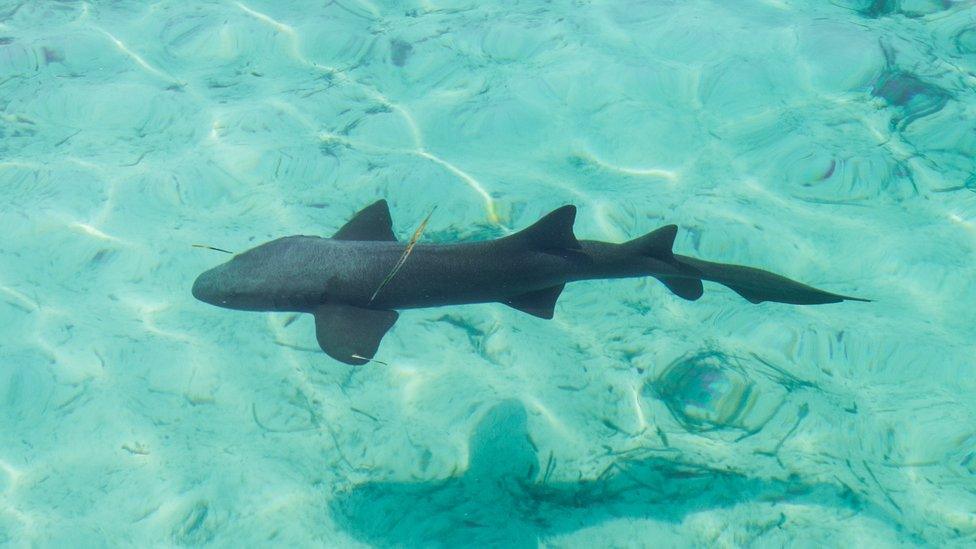
A great nurse shark was found to have skin cancer in 2010
Ellen said patients think that sharks don't get cancer and therefore their cartilage could be used to fight or cure it.
This myth dates back to the 1970s,, external when researchers in Florida exposed them to high levels of a carcinogen and then found no evidence of tumours.
But, in a number of studies, there has been no evidence found, external that it works as a treatment - not even in mice., external
And in 2010, it was found that sharks could in fact develop cancer after a female nurse shark in Indianapolis Zoo was found to have a melanoma., external
Coffee enemas help
Ellen said: "Coffee enemas were popular for a while. Sites were coming up advertising that they could do something to the make-up of the bowel and that would cure cancer."
In fact, Cancer Research UK writes:, external "Coffee enemas have been linked to serious infections, dehydration, constipation, colitis (inflammation of the colon), and dangerous electrolyte imbalances or even death."
Ellen said the myth led many people to travel long distances to special clinics "being charged lots and lots of money".
It's a modern disease
"There is the idea that it's a man-made modern disease," says Ellen. "But it isn't - it's been found in Egyptian mummies."
One of these, from 2,250 years ago,, external was found with prostate cancer, while an ancient 1.7 million-year-old toe, external from South Africa was found to have an aggressive type of bone cancer.
- Published27 October 2017
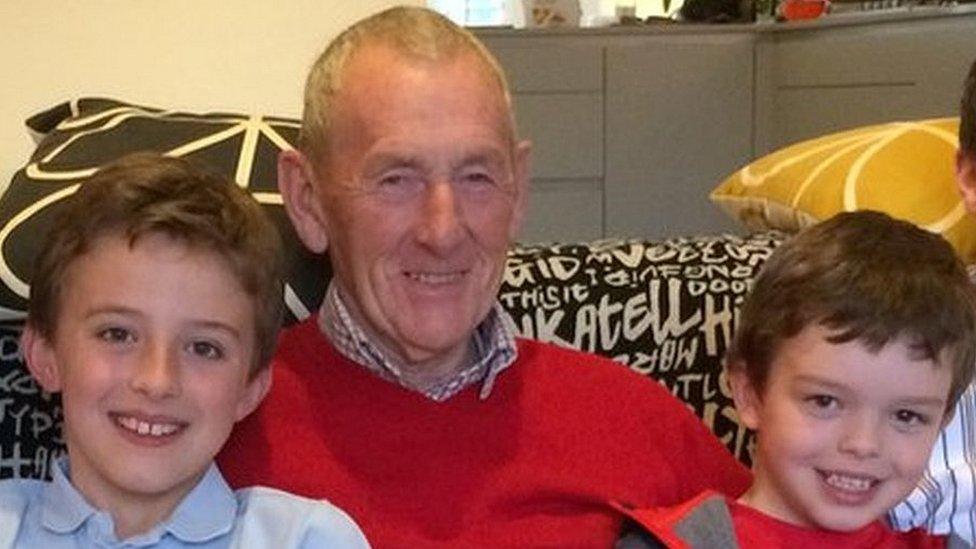
- Published19 October 2017
